第18章 III. THE NIGHT BOAT.(5)
"Why, I only heard a little tinkling of the chandeliers," said one of the ladies. "Is it such a very alight matter to run down another boat and sink it?"
She appealed indirectly to Basil, who answered lightly, "I don't think you ladies ought to have been disturbed at all. In running over a common tow-boat on a perfectly clear night like this there should have been no noise and no perceptible jar. They manage better on the Mississippi, and both boats often go down without waking the lightest sleeper on board."
The ladies, perhaps from a deficient sense of humor, listened with undisguised displeasure to this speech. It dispersed them, in fact; some turned away to bivouac for the rest of the night upon the arm-chairs and sofas, while others returned to their rooms. With the latter went Isabel. "Lock me in, Basil," she said, with a bold meekness, "and if anything more happens don't wake me till the last moment." It was hard to part from him, but she felt that his vigil would somehow be useful to the boat, and she confidingly fell into a sleep that lasted till daylight.
Meantime, her husband, on whom she had tacitly devolved so great a responsibility, went forward to the promenade in front of the saloon, in hopes of learning something more of the catastrophe from the people whom he had already found gathered there.
A large part of the passengers were still there, seated or standing about in earnest colloquy. They were in that mood which follows great excitement, and in which the feeblest-minded are sure to lead the talk.
At such times one feels that a sensible frame of mind is unsympathetic, and if expressed, unpopular, or perhaps not quite safe; and Basil, warned by his fate with the ladies, listened gravely to the voice of the common imbecility and incoherence.
The principal speaker was a tall person, wearing a silk travelling-cap.
He had a face of stupid benignity and a self-satisfied smirk; and he was formally trying to put at his ease, and hopelessly confusing the loutish youth before him. "You say you saw the whole accident, and you're probably the only passenger that did see it. You'll be the most important witness at the trial," he added, as if there would ever be any trial about it. "Now, how did the tow-boat hit us?"
"Well, she came bows on."
"Ah! bows on," repeated the other, with great satisfaction; and a little murmur of "Bows on!" ran round the listening circle.
"That is," added the witness, "it seemed as if we struck her amidships, and cut her in two, and sunk her."
"Just so," continued the examiner, accepting the explanation, "bows on.
Now I want to ask if you saw our captain or any of the crew about?"
"Not a soul," said the witness, with the solemnity of a man already on oath.
"That'll do," exclaimed the other. "This gentleman's experience coincides exactly with my own. I didn't see the collision, but I did see the cloud of steam from the sinking boat, and I saw her go down. There wasn't an officer to be found anywhere on board our boat. I looked about for the captain and the mate myself, and couldn't find either of them high or low."
"The officers ought all to have been sitting here on the promenade deck," suggested one ironical spirit in the crowd, but no one noticed him.
The gentleman in the silk travelling-cap now took a chair, and a number of sympathetic listeners drew their chairs about him, and then began an interchange of experience, in which each related to the last particular all that he felt, thought, and said, and, if married, what his wife felt, thought, and said, at the moment of the calamity. They turned the disaster over and over in their talk, and rolled it under their tongues.